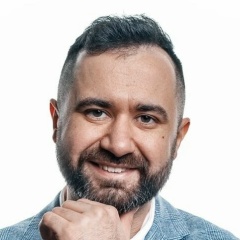Вопрос: помогают ли молитвы выздоровлению?
Ответ: Относительно недавно проведенный эксперимент, финансированный, конечно же, Фондом Темплтона и имеющий целью проверить предположение, что молитва о болящих способствует их выздоровлению. Подобные эксперименты — для обеспечения полной беспристрастности — должны проводиться вслепую (со случайным распределением участников), и это условие строго соблюдалось. Пациенты в абсолютно случайном порядке были разбиты на экспериментальную (субъекты молитвы) и контрольную (отсутствие молитвы) группы. Ни пациенты, ни их доктора и медсестры, ни проводящие эксперимент сотрудники не знали, о каком пациенте воздаются молитвы, а о каком — нет. Возносящим молитвы верующим было нужно знать имена тех, о ком они молились: иначе как можно было бы утверждать, что они молятся именно за них, а не за кого-либо другого? Но им сообщили только имя и первую букву фамилии пациента. Данный эксперимент вызвал множества насмешек Героически перенося насмешки, группа исследователей продолжала доблестно осваивать 2,4 миллиона американских долларов, полученных от Фонда Темплтона, руководил ими доктор Герберт Бенсон, кардиолог из расположенного под Бостоном Медицинского института духа и тела (Mind/Body Medical Institute). Ранее, в коммюнике издательства "Темплтон", доктор Бенсон заявил: "Количество доказательств эффективности молитв о помощи в медицинской практике все увеличивается". Ну что ж, можно не сомневаться, что эксперимент — в надеж-ных руках и вряд ли провалится из-за скептицизма экспери-ментатора. Доктор Бенсон и его группа обследовали в шести больницах 1802 пациента, перенесших операцию коронарного шунтирования. Больных разделили на три группы. За больных 1-й группы возносились молитвы, но они об этом не знали. За больных 2-й группы (контрольной) молитвы не возноси-лись, и они также об этом не знали. За больных з-й группы молились с их ведома. По результатам состояния больных 1-й и 2-й групп определялась эффективность молитвы о помощи. Состояние больных з-й группы свидетельствовало о возможных психосоматических воздействиях на пациентов знания о том, что за них молятся. Моление проводилось паствой трех церквей: в Миннесоте, Массачусетсе и Миссури; все три церкви — на значительном расстоянии от трех больниц. Как уже говорилось, молящиеся знали только имя и первую букву фамилии того пациента, за которого они молились. Научные эксперименты принято проводить с максимально возможной степенью стандартизации, поэтому всех молящихся попросили включить в молитву фразу "об успешной операции и быстром выздоровлении без осложнений". Опубликованные в апреле 2006 года в "Американском кардиологическом журнале" результаты не оставляют сомнений. Состояние больных, за которых возносились молитвы, ничем не отличалось от состояния больных, за которых молитвы не возносились. Имелось различие в состоянии тех, кто знал, что о них молятся, и пациентов из обеих групп, которые об этом не знали, — но и оно оказалось обратным ожиданию. У больных, знающих, что о них возносят молитвы, обнаружилось значительно больше осложнений, чем у тех, кто об этом не знал.
Ответ: Относительно недавно проведенный эксперимент, финансированный, конечно же, Фондом Темплтона и имеющий целью проверить предположение, что молитва о болящих способствует их выздоровлению. Подобные эксперименты — для обеспечения полной беспристрастности — должны проводиться вслепую (со случайным распределением участников), и это условие строго соблюдалось. Пациенты в абсолютно случайном порядке были разбиты на экспериментальную (субъекты молитвы) и контрольную (отсутствие молитвы) группы. Ни пациенты, ни их доктора и медсестры, ни проводящие эксперимент сотрудники не знали, о каком пациенте воздаются молитвы, а о каком — нет. Возносящим молитвы верующим было нужно знать имена тех, о ком они молились: иначе как можно было бы утверждать, что они молятся именно за них, а не за кого-либо другого? Но им сообщили только имя и первую букву фамилии пациента. Данный эксперимент вызвал множества насмешек Героически перенося насмешки, группа исследователей продолжала доблестно осваивать 2,4 миллиона американских долларов, полученных от Фонда Темплтона, руководил ими доктор Герберт Бенсон, кардиолог из расположенного под Бостоном Медицинского института духа и тела (Mind/Body Medical Institute). Ранее, в коммюнике издательства "Темплтон", доктор Бенсон заявил: "Количество доказательств эффективности молитв о помощи в медицинской практике все увеличивается". Ну что ж, можно не сомневаться, что эксперимент — в надеж-ных руках и вряд ли провалится из-за скептицизма экспери-ментатора. Доктор Бенсон и его группа обследовали в шести больницах 1802 пациента, перенесших операцию коронарного шунтирования. Больных разделили на три группы. За больных 1-й группы возносились молитвы, но они об этом не знали. За больных 2-й группы (контрольной) молитвы не возноси-лись, и они также об этом не знали. За больных з-й группы молились с их ведома. По результатам состояния больных 1-й и 2-й групп определялась эффективность молитвы о помощи. Состояние больных з-й группы свидетельствовало о возможных психосоматических воздействиях на пациентов знания о том, что за них молятся. Моление проводилось паствой трех церквей: в Миннесоте, Массачусетсе и Миссури; все три церкви — на значительном расстоянии от трех больниц. Как уже говорилось, молящиеся знали только имя и первую букву фамилии того пациента, за которого они молились. Научные эксперименты принято проводить с максимально возможной степенью стандартизации, поэтому всех молящихся попросили включить в молитву фразу "об успешной операции и быстром выздоровлении без осложнений". Опубликованные в апреле 2006 года в "Американском кардиологическом журнале" результаты не оставляют сомнений. Состояние больных, за которых возносились молитвы, ничем не отличалось от состояния больных, за которых молитвы не возносились. Имелось различие в состоянии тех, кто знал, что о них молятся, и пациентов из обеих групп, которые об этом не знали, — но и оно оказалось обратным ожиданию. У больных, знающих, что о них возносят молитвы, обнаружилось значительно больше осложнений, чем у тех, кто об этом не знал.
Question: do prayers help recovery?
Answer: A relatively recent experiment, funded, of course, by the Templeton Foundation, to test the hypothesis that praying for the sick helps them recover. Such experiments - to ensure complete impartiality - must be carried out blindly (with a random distribution of participants), and this condition was strictly observed. Patients were randomly divided into experimental (prayer subjects) and control (no prayer) groups. Neither the patients, nor their doctors and nurses, nor the staff conducting the experiment knew which patient was being prayed for and which was not. Prayer believers needed to know the names of those for whom they were praying: otherwise how could it be said that they were praying for them and not for someone else? But they were given only the first and the first letter of the patient's last name. The experiment provoked many ridicule, heroically enduring ridicule, the research team continued to valiantly pursue the $ 2.4 million raised from the Templeton Foundation, led by Dr. Herbert Benson, a cardiologist at the Boston-based Mind / Body Medical Institute. Earlier, in a Templeton communique, Dr. Benson said, "The evidence for the effectiveness of prayer for help in medical practice is growing." Well, there is no doubt that the experiment is in good hands and is unlikely to fail because of the experimenter's skepticism. Dr. Benson and his team examined 1802 patients undergoing coronary artery bypass grafting in six hospitals. The patients were divided into three groups. Prayers were offered for the patients of the 1st group, but they did not know about it. For the patients of the 2nd group (control), no prayers were offered, and they also did not know about it. The patients of the third group were prayed for with their knowledge. According to the results of the state of patients of the 1st and 2nd groups, the effectiveness of prayer for help was determined. The condition of the patients of the third group testified to the possible psychosomatic effects on the patients of the knowledge that they were being prayed for. The prayer was conducted by the congregation of three churches: in Minnesota, Massachusetts and Missouri; all three churches are at a considerable distance from the three hospitals. As already mentioned, the worshipers knew only the name and the first letter of the surname of the patient for whom they were praying. It is customary to conduct scientific experiments with the greatest possible degree of standardization, so all worshipers were asked to include the phrase "about a successful operation and a quick recovery without complications" in the prayer. Published in April 2006 in the American Journal of Cardiology, the results leave no doubt. The condition of the sick, for whom prayers were offered up, did not differ in any way from the condition of the sick, for whom prayers were not offered up. There was a difference in the state of those who knew that they were being prayed for, and the patients from both groups who did not know about it - but it turned out to be the opposite of the expectation. Patients who knew that prayers were being offered for them had significantly more complications than those who did not know about it.
Answer: A relatively recent experiment, funded, of course, by the Templeton Foundation, to test the hypothesis that praying for the sick helps them recover. Such experiments - to ensure complete impartiality - must be carried out blindly (with a random distribution of participants), and this condition was strictly observed. Patients were randomly divided into experimental (prayer subjects) and control (no prayer) groups. Neither the patients, nor their doctors and nurses, nor the staff conducting the experiment knew which patient was being prayed for and which was not. Prayer believers needed to know the names of those for whom they were praying: otherwise how could it be said that they were praying for them and not for someone else? But they were given only the first and the first letter of the patient's last name. The experiment provoked many ridicule, heroically enduring ridicule, the research team continued to valiantly pursue the $ 2.4 million raised from the Templeton Foundation, led by Dr. Herbert Benson, a cardiologist at the Boston-based Mind / Body Medical Institute. Earlier, in a Templeton communique, Dr. Benson said, "The evidence for the effectiveness of prayer for help in medical practice is growing." Well, there is no doubt that the experiment is in good hands and is unlikely to fail because of the experimenter's skepticism. Dr. Benson and his team examined 1802 patients undergoing coronary artery bypass grafting in six hospitals. The patients were divided into three groups. Prayers were offered for the patients of the 1st group, but they did not know about it. For the patients of the 2nd group (control), no prayers were offered, and they also did not know about it. The patients of the third group were prayed for with their knowledge. According to the results of the state of patients of the 1st and 2nd groups, the effectiveness of prayer for help was determined. The condition of the patients of the third group testified to the possible psychosomatic effects on the patients of the knowledge that they were being prayed for. The prayer was conducted by the congregation of three churches: in Minnesota, Massachusetts and Missouri; all three churches are at a considerable distance from the three hospitals. As already mentioned, the worshipers knew only the name and the first letter of the surname of the patient for whom they were praying. It is customary to conduct scientific experiments with the greatest possible degree of standardization, so all worshipers were asked to include the phrase "about a successful operation and a quick recovery without complications" in the prayer. Published in April 2006 in the American Journal of Cardiology, the results leave no doubt. The condition of the sick, for whom prayers were offered up, did not differ in any way from the condition of the sick, for whom prayers were not offered up. There was a difference in the state of those who knew that they were being prayed for, and the patients from both groups who did not know about it - but it turned out to be the opposite of the expectation. Patients who knew that prayers were being offered for them had significantly more complications than those who did not know about it.
У записи 1 лайков,
0 репостов.
0 репостов.
Эту запись оставил(а) на своей стене Руслан Румянцев






















